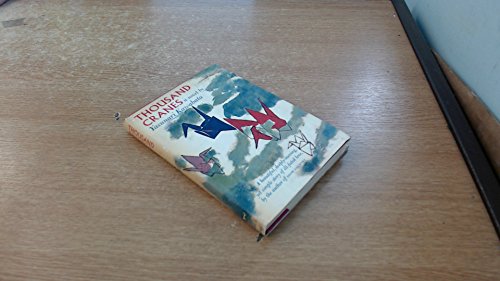Items related to Thousand Cranes

Synopsis
Thousand Cranes is a story of love given and love withheld. Set against the backdrop of Japan's traditional tea ceremony, it is a taut, highly dramatic novel gleaming with sudden passages of poetic beauty. In one of the book's strongest scenes, the two characters are symbolized by the two fine old China bowls, one female and one male, that sit before them.The novel opens with Kikuji on his way to a tea ceremony given by Chikako, one of his father's former mistresses. He is also on his way to act out the unfinished drama of his father's life. Kikuji's father had been a cultivated man, an art lover and a pleasure seeker. He had cast off one mistress, Chikako, but had loved another, Mrs Ota, until his death. Kikuji, like his father, tries to escape from Chikako, now masculine and meddlesome. Like his father, too, he is drawn to Mrs Ota, who has remained young, alluring and pliant even though her daughter, Fumiko, is only twenty years old. Kikuji's guilty passion for Mrs Ota and Fumiko's efforts to alter the family fate lead to the novel's stunning climax.
"synopsis" may belong to another edition of this title.
From the Inside Flap
With a restraint that barely conceals the ferocity of his characters' passions, one of Japan's great postwar novelists tells the luminous story of Kikuji and the tea party he attends with Mrs. Ota, the rival of his dead father's mistress. A tale of desire, regret, and sensual nostalgia, every gesture has a meaning, and even the most fleeting touch or casual utterance has the power to illuminate entire lives--sometimes in the same moment that it destroys them. Translated from the Japanese by Edward G. Seidensticker.
"A novel of exquisite artistry...rich suggestibility...and a story that is human, vivid and moving."--New York Herald Tribune
Kawabata is a poet of the gentlest shades, of the evanescent, the imperceptible. This is a tragedy in soft focus, but its passions are fierce."--Commonweal
About the Author
Yasunari Kawabata was born in Osaka in 1899. In 1968 he became the first Japanese writer to receive the Nobel Prize for Literature. One of Japan’s most distinguished novelists, he published his first stories while he was still in high school, graduating from Tokyo Imperial University in 1924. His short story “The Izu Dancer,” first published in 1925, appeared in The Atlantic Monthly in 1955. Kawabata authored numerous novels, including Snow Country (1956), which cemented his reputation as one of the preeminent voices of his time, as well as Thousand Cranes (1959), The Sound of the Mountain (1970), The Master of Go (1972), and Beauty and Sadness (1975). He served as the chairman of the P.E.N. Club of Japan for several years and in 1959 he was awarded the Goethe-medal in Frankfurt. Kawabata died in 1972.
"About this title" may belong to another edition of this title.
(No Available Copies)
Search Books: Create a WantCan't find the book you're looking for? We'll keep searching for you. If one of our booksellers adds it to AbeBooks, we'll let you know!
Create a Want
